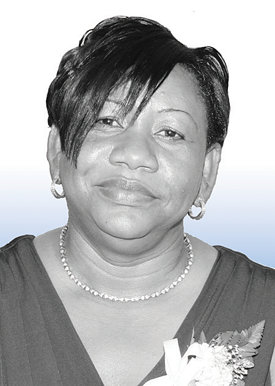Heart failure, sometimes called congestive heart failure, occurs when the heart muscle does not pump blood as well as it should. Heart failure is a serious long-term condition that will usually continue to get slowly worse, over time, unless managed appropriately. Symptoms and signs vary widely and in some cases can be life- threatening. Proper treatment can improve some of the signs and symptoms of heart failure and may help some people live longer.
What is heart failure?
Heart failure does not mean your heart has stopped working. It usually means the heart needs some support to help it work better. Heart failure causes an accumulation of fluid in other parts of the body, most commonly in the lungs and lower extremities (feet/legs). Heart failure can occur at any age, but is most common in older people. It is a long-term condition that tends to get gradually worse over time. In many cases the symptoms can often be controlled for many years.
What are some causes of heart failure?
Heart failure often develops after other conditions have damaged or weakened the heart. However, heart failure can also occur if the heart becomes too stiff. Conditions that can lead to heart failure include: coronary heart disease, high blood pressure, cardiomyopathy, heart rhythm problems, and congenital heart disease. Sometimes anaemia, drinking too much alcohol, an overactive thyroid or high pressure in the lungs (pulmonary hypertension) can also lead to heart failure.
What are some symptoms and signs of heart failure?
Heart failure signs and symptoms may include:
• Shortness of breath with activity or when lying down
• Fatigue and weakness
• Swelling in the legs, ankles and feet
• Rapid or irregular heartbeat
• Reduced ability to exercise
• Persistent cough or wheezing with white or pink blood-tinged mucus
• Swelling of the abdomen
• Very rapid weight gain from fluid buildup
• Nausea and lack of appetite
• Difficulty concentrating or decreased alertness
• Chest pain if heart failure is caused by a heart attack
Treatment
Treatment for heart failure usually aims to control the symptoms for as long as possible, and slow down the progression of the condition.
Common treatments include:
• lifestyle changes – including eating a healthy diet, exercising regularly and stopping smoking
• medicine – a range of medicines can help. Many people need to take 2 or 3 different types
• devices implanted in your chest. These can help control your heart rhythm
• surgery – such as a bypass operation or a heart transplant
Treatment will usually be needed for life.
A cure may be possible when heart failure has a treatable cause. For example, if your heart valves are damaged, replacing or repairing them may cure the condition.
How to prevent heart failure?
Although you cannot control some risk factors like age, family history or race, you can change your lifestyle to give yourself the best chance of preventing heart failure. Things you can do include:
• Staying at a healthy weight.
• Eating foods that are good for your heart.
• Exercising regularly.
• Reducing and managing stress.
• Stopping the use of tobacco products.
• Not drinking alcohol.
• Not using recreational drugs.
• Controlling certain conditions such as high blood pressure and diabetes
• Taking care of other medical conditions you have that can increase your risk.
What are the complications of heart failure?
Some of the complications of heart failure include:
• Irregular heartbeat.
• Sudden cardiac arrest.
• Heart valve problems.
• A collection of fluid in your lungs.
• Pulmonary hypertension.
• Kidney damage.
• Liver damage.
• Malnutrition.
Conclusion
Heart failure is a long-term condition in which the heart cannot pump blood well enough to meet the body’s needs all the time. Treatment includes exercise and medicine at first, and possible surgical procedures when heart failure gets worse. Your outlook depends on a range of factors, including how well you take care of yourself. If you have symptoms suggestive of heart failure please see your medical doctor for an evaluation.
Ask Your Doctor is a health education column and is not a substitute for medical advice from your physician. The reader should consult his or her physician for specific information concerning specific medical conditions. While all reasonable efforts have been made to ensure that all information presented is accurate, as research and development in the medical field are ongoing, it is possible that new findings may supersede some data presented.
Dr Brett Hodge is an Obstetrician/Gynaecologist and Family Doctor. Dr Hodge has a medical practice in The Johnson Building in The Valley (Tel: 264 4975828).










